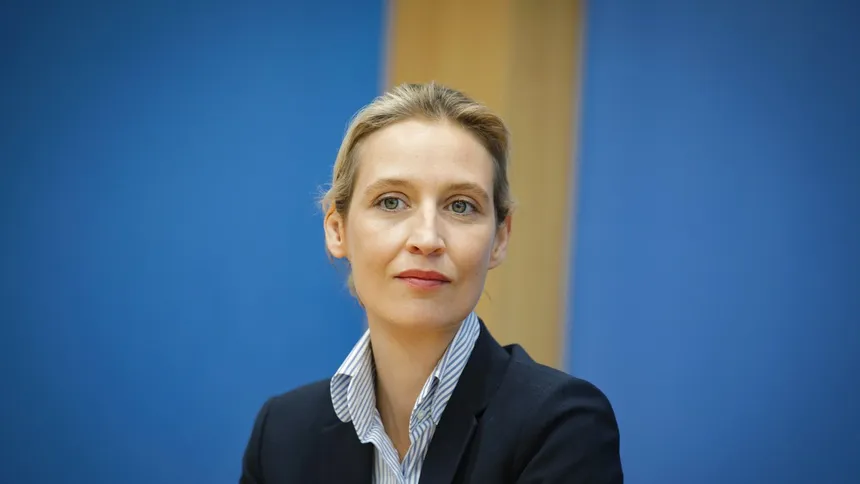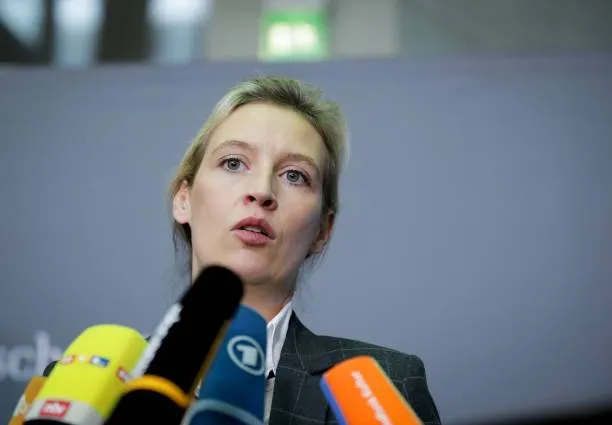The far-right Alternative for Germany party (AfD) held its national convention in the western city of Essen, despite strong opposition from thousands of protesters who descended upon the city. The AfD’s performance in the recent European election, where it secured 15.9% of the vote, has bolstered its hopes of emerging as the strongest party in three state elections in the formerly communist east in September. The convention, which took place over two days, resulted in the re-election of co-leaders Alice Weidel and Tino Chrupalla to new two-year terms, with both leaders receiving an overwhelming majority of delegate support.
Weidel vowed to work towards “tearing down the unspeakable so-called firewalls” that other parties have set up against working with AfD, a clear indication of the party’s intentions to challenge the status quo and forge alliances with other political entities. However, the convention was met with fierce resistance from protesters, with thousands attending a march and staging sit-ins on streets and crossings near the convention hall.
Police were deployed in large numbers to maintain order, and several incidents of violence were reported, including the use of pepper spray and batons by police against protesters who attempted to breach a barrier. There were also reports of masked demonstrators attacking officers, resulting in several arrests. Despite the tensions, the AfD leadership remained resolute, with Weidel telling delegates that the protests had nothing to do with democracy and vowing that the party would continue to operate.

Alice Weidel (Via Alice Weidel/Twitter)
The AfD’s recent setbacks, including the sidelining of its top two candidates from the election campaign due to scandals and being kicked out of its hard-right group in the European Parliament, were acknowledged by Chrupalla, who attributed the party’s poor performance to “careless and unprofessional behaviour” by some of its members. However, he also emphasized the need for the party to take a closer look at its candidates and argued that this would be essential for its future success.
The AfD’s strong performance in the European election has raised concerns among politicians and voters alike, with many viewing the party’s ideology as being too close to that of the far-right. The party’s convention, which was attended by thousands of delegates, reflects its growing influence and reach within German politics. As the party prepares to contest state elections in the formerly communist east, it remains to be seen how it will navigate the complex political terrain and whether its rhetoric and policies will resonate with voters.











































